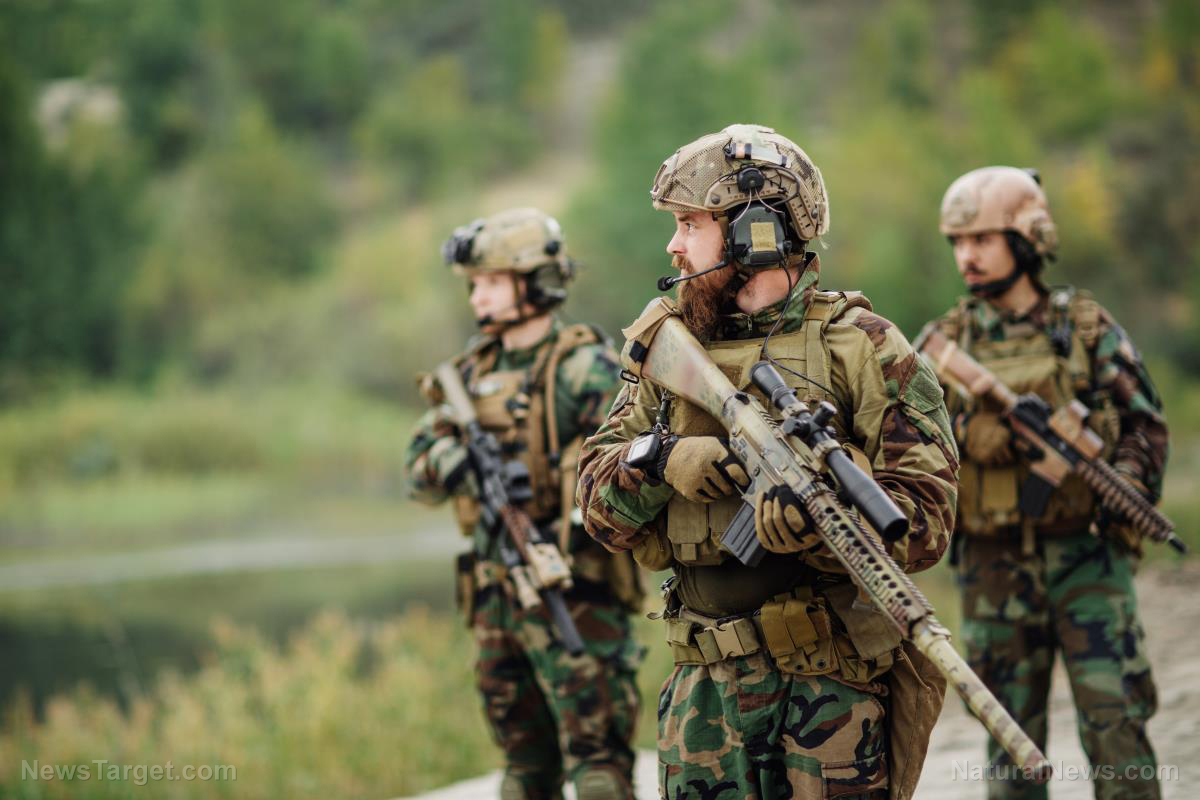Energy-absorbing plastic frame developed to protect troops from blasts that harm the brain
03/20/2018 / By Edsel Cook

A joint study by two major Maryland universities have created a new shock absorbing device to protect the people inside military vehicles from traumatic brain injuries (TBI) during a landmine or IED blast, reported ScienceDaily.
More than a quarter of a million members of the U.S. military have suffered TBI during the last two decades of strike in Afghanistan and Iraq. Earlier research into TBI protection focused on the effects of overpressure, the drastic shifts in atmospheric pressure caused by explosions.
“This is the only research so far to model the effects of under-vehicle blasts on the occupants,” explained Dr. Gary Fiskum, study author and team leader of the joint project between the University of Maryland School of Medicine (UMSOM) and the University of Maryland (UMD).
According to him, the crew and occupants of military vehicles could still experience TBI despite the lack of major overpressure effects. That was why the UMD and UMSOM team developed materials and designed vehicle frames that minimize the injuries caused by explosions that took place beneath a vehicle.
The study gave the first look at how TBI could result from the G-forces that people inside military vehicles experience during under-vehicle blasts. The sudden acceleration could still cause mild to moderate brain injuries while leaving other vital organs undamaged.
“Intense acceleration can destroy synapses, damage nerve fibers, stimulate neuroinflammation, and damage the brain’s blood vessels,” warned Dr. Fiskum.
He and his fellow researchers also detailed the molecular mechanisms that caused this particular type of TBI in the Journal of Trauma and Acute Care Surgery. (Related: Can caffeine protect you from Parkinson’s?)
Special shock absorbers will reduce TBI by 80 percent
Dr. Fiskum’s co-author, Dr. William Fourney, oversaw the effort of developing shock absorber designs with innovative structures such as polyurea-coated tubes. The elastic frame can reduce up to 80 percent of the blast acceleration experienced by people inside the affected vehicle.
“Essentially, it spreads out the application of force,” Dr. Fourney explained regarding the special plastic-coated shock absorbers.
“Polyurea is compressible and rebounds following compression, resulting in an excellent ability to decrease the acceleration,” he said.
Dr. Flaubert Tchantchou published the results of his findings in the Journal of Neurotrauma. He placed lab rats inside small-scale vehicles with fixed frames and subjected them to similar G-forces experienced during under-vehicle blast attacks.
According to him, the rats suffered damaged neuronal connections and behavioral alterations. Similar tests using an vehicle equipped with an elastic frame design prevented TBI from developing.
“The research team has addressed an important clinical problem by identifying a novel mechanism to explain TBI, engineered a solution to the problem, and convincingly demonstrated improvements in morphology and behavior,” said Dr. Peter Rock of the Department of Anesthesiology.
According to Dr. Rock, the work will not just improve outcomes in military blast-induced TBI cases. It could also be used in decreasing the risk of civilian TBI cases, like during a car crash.
The next step for the UMD-UMSOM study is to build a larger scale model and test the shock-absorbent elastic frame system.
“If the data holds up for those, it will hold true for full scale,” Dr. Fiskum expected.
The U.S. Army and the U.S. Air Force provided additional funding to the UMD and UMSOM researchers. Research funded by the latter showed that rats with TBI from under-vehicle explosions recovered better when they were subjected to increased atmospheric pressure.
The results suggested that airplanes that are transporting trauma patients should increase their cabin pressure to higher-than-normal levels in order to improve its passengers’ recovery.
Find out more about brain-related health at Brain.news.
Sources include:
Tagged Under: brain injuries, Brain Injury, future science, inventions, landmines, medical technology, military tech, neuroinflammation, polyurea, shock absorbers, TBI, traumatic brain injury, U.S. military, under-vehicle blasts
RECENT NEWS & ARTICLES
COPYRIGHT © 2017 BRAIN NEWS


















